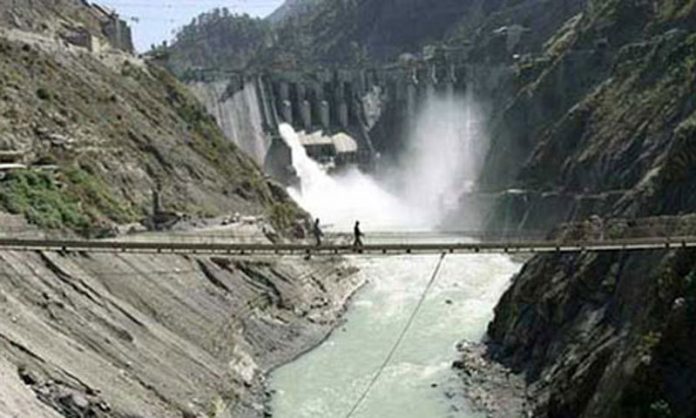LAHORE: The strategically important 969 MW-Neelum Jhelum Hydropower Project achieved yet another landmark towards its completion as water filling (pressurisation) of its waterway system comprising 51.5 kilometre long tunnels has commenced on Friday. Being a critical activity, the water filling in the waterway system is being carried out in a phased manner. In the first instance, the water filling (pressurisation) has been started towards the tail end.
Speaking on the occasion, Neelum Jhelum Hydropower Project Chief Executive Officer Brigadier (retd) Muhammad Zareen said that the project is fast heading towards completion and most of the works, critical in nature, have been successfully completed. Construction of the weir (dam) of the project, waterway system, installation of electrical and mechanical equipment including turbines, generators and transformers in the powerhouse and the switchyard and dry-testing of equipment has already been completed. While impounding of water in the reservoir is underway. Overall progress on the project stands at around 97 per cent.
Meanwhile, WAPDA Chairman Lieutenant General Muzammil Hussain (retd), in a statement, congratulated the Neelum Jhelum Hydropower Project authorities, the consultants and the contractors for achieving the milestone vis-à-vis water filling (pressurisation) of the tail end tunnel. He reiterated that WAPDA is committed to completing Neelum Jhelum Hydropower Project as early as possible.
It is worth mentioning that Neelum Jhelum Hydropower Project is a component of least-cost energy generation plan, being implemented by WAPDA on priority. The project is located in Azad Jammu and Kashmir with an installed capacity of 969 MW. It has four generating units, each of them having a capacity of 242.25 MW. The first unit will start electricity generation in March this year, followed by the second, third and fourth units at one-month intervals respectively. The project will provide low-cost and environment-friendly electricity to the national grid every year. Annual benefits of the project have been estimated at Rs 50 billion.




